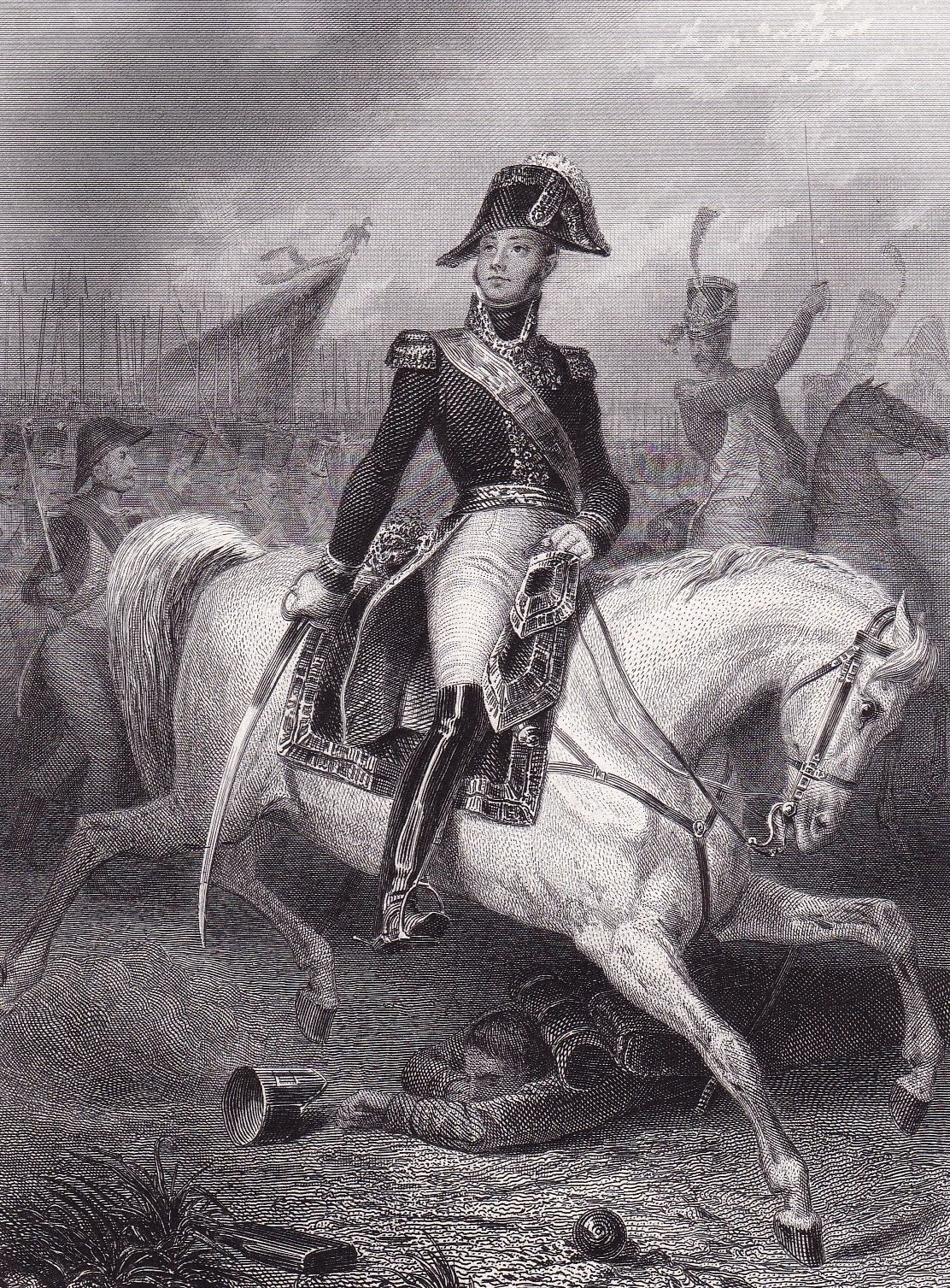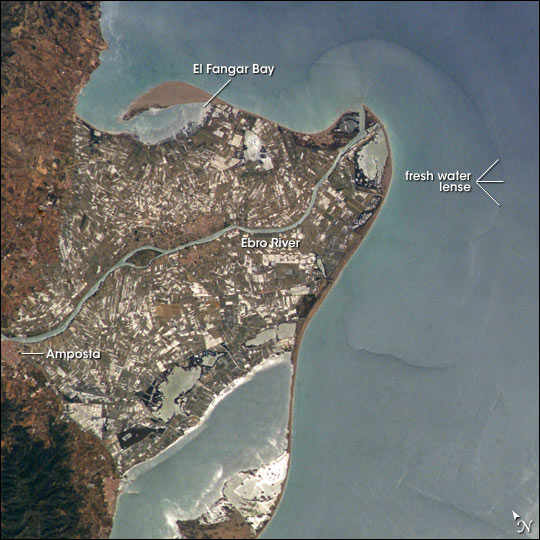|
Francesco Pignatelli, Prince Of Strongoli
Francesco Pignatelli, 7th Prince of Strongoli (1774–1853) was an Italian nobleman and military commander. He was a nephew of {{interlanguage link, Francesco Pignatelli, marchese di Laino, it. Peninsular War {{main, Peninsular War In March 1810 Pignatelli was sent to command the Neapolitan Division incorporated in Étienne Macdonald's troops in Catalonia. Pignatelli had previously served under Macdonald in Naples.{{in lang, it"Pignatelli, Francesco, principe di Strongoli".''Enciclopedia Treccani''. Retrieved 30 April 2023. In mid-August, his division, together with the other Italian division, under Severoli, and Frère's division, were able to successfully escort a large convoy into Barcelona. On 15 September 1810 Catalan insurgents captured a whole battalion of Pignatelli's Neapolitans on the Ebro The Ebro (Spanish and Basque ; , , ) is a river of the north and northeast of the Iberian Peninsula, in Spain. It rises in Cantabria and flows , almost entirely in an east-so ... [...More Info...] [...Related Items...] OR: [Wikipedia] [Google] [Baidu] |
Étienne Macdonald
Étienne Jacques-Joseph-Alexandre Macdonald,''Le Petit Robert des noms propres'', French edition, 2018, entry « Macdonald (Étienne Jacques Joseph Alexandre) ». As a French citizen, his name has been registered as "Macdonald", without an upercase "D" after the prefix "Mac".. 1st duc de Taranto, Tarente (; 17 November 176525 September 1840), was a Marshal of the Empire and military leader during the French Revolutionary Wars and Napoleonic Wars. While not as famous as the other marshals of Napoleon, he was nonetheless a first-rate and successful general. Macdonald distinguished himself during the War of the First Coalition, with Macdonald being instrumental in the French victory during the Low Countries theatre of the War of the First Coalition, Flanders campaign. He saw service in the Low Countries, Holy Roman Empire, Germany and Kingdom of Sardinia (1720–1861), Italy. He was one of the most successful French First Republic, Republican generals, playing an important role in ... [...More Info...] [...Related Items...] OR: [Wikipedia] [Google] [Baidu] |
Treccani
Institute Giovanni Treccani for the publication of the Italian Encyclopedia (), also known as Treccani Institute or simply Treccani, is a cultural institution of national interest, active in the publishing field, founded by Giovanni Treccani and Giovanni Gentile in 1925. It is known for publishing the first edition and the subsequent ten supplements of the ''Italian Encyclopaedia of Science, Literature and Arts'' (). History The Institute of the Italian Encyclopaedia was founded in Rome in 1925 by Giovanni Treccani, with the philosopher Giovanni Gentile as editor-in-chief. The first publication by the Institute was the ''Enciclopedia Italiana di Scienze, Lettere e Arti'' (). This encyclopaedia, best known as ''Enciclopedia Italiana'' or the ''Great Encyclopaedia'', is an Italian-language encyclopaedia and is regarded as one of the great encyclopaedias, being international in scope, alongside ''Encyclopædia Britannica'' and others. Since the 1990s, Treccani has been playing ... [...More Info...] [...Related Items...] OR: [Wikipedia] [Google] [Baidu] |
Filippo Severoli
Filippo Severoli (Faenza, 16 November 1762 — Fusignano, 6 October 1822) was an Italian general and noble who served in the Kingdom of Italy during the Napoleonic Wars and in the Austrian Empire. He was named Earl of Hannover and governor of Piacenza by Napoleon Bonaparte. Biography An ardent Jacobin, he enlisted in the Lombard Legion, the first army unit of the newly formed Cisalpine Republic, shortly after the French invasion of northern Italy and, by 1798, reached the rank of colonel. In 1800, after being promoted to the rank of brigadier general, he led the ''1er Brigade'' of the Cisalpine troops and served in the division commanded by Giuseppe Lechi, protecting, near Mincio river, the operation of the French army under Napoleon Bonaparte, that was crossing the Po in the campaign that ended in the Battle of Marengo. In 1805, he was named to command the place of Milan, and, the following year, joined the marshal André Masséna in his campaign against the Kingdom of Na ... [...More Info...] [...Related Items...] OR: [Wikipedia] [Google] [Baidu] |
Bernard-Georges-François Frère
Bernard-Georges-François Frère, Count of the Empire, (; 8 January 1762, in Montréal, Aude – 16 February 1826, in Paris) was a French soldier of the French Revolutionary Wars, who later rose to the top military rank of General of Division, taking part in the Napoleonic Wars. Revolutionary Wars A pharmacist in the city of Carcassonne at the outbreak of the French Revolution, Frère exercised this profession until 1791, when he decided to join the army. He was rapidly elected captain and took part to Pyrenees military operations against Spain during the War of the First Coalition. He distinguished himself in battle and gained the rank of ''chef de battalion'' (battalion commander) in 1793. Following the signature of the treaty of peace between the Kingdom of Spain and the young French Republic, Frère was assigned to the Army of Italy and took part to several battles, including the assault of the Serra redoubts, where was wounded, and at the battle of Bassano. Sent to ser ... [...More Info...] [...Related Items...] OR: [Wikipedia] [Google] [Baidu] |
Ebro
The Ebro (Spanish and Basque ; , , ) is a river of the north and northeast of the Iberian Peninsula, in Spain. It rises in Cantabria and flows , almost entirely in an east-southeast direction. It flows into the Mediterranean Sea, forming a delta in the Terres de l'Ebre region, in southern Catalonia. In the Iberian peninsula, it ranks second in length after the Tagus and second in discharge volume, and drainage basin, after the Douro. It is the longest river entirely within Spain; the other two mentioned flow into Portugal. The Ebro flows through many cities (): Reinosa in Cantabria; Frías and Miranda de Ebro in Castile and León; Haro, Logroño, Calahorra, and Alfaro in La Rioja; Tudela in Navarre; Alagón, Utebo, and Zaragoza in Aragon; and Flix, Móra d'Ebre, Benifallet, Tivenys, Xerta, Aldover, Tortosa, and Amposta in the province of Tarragona (Catalonia). Geography Upper part and tributaries The source of the river Ebro is in the Cantabrian Moun ... [...More Info...] [...Related Items...] OR: [Wikipedia] [Google] [Baidu] |
Charles Oman
Sir Charles William Chadwick Oman, (12 January 1860 – 23 June 1946) was a British Military history, military historian. His reconstructions of medieval battles from the fragmentary and distorted accounts left by chroniclers were pioneering. Early life Oman was born in Muzaffarpur district, India, the son of a British planter, and was educated at Winchester College and at the University of Oxford, where he studied under William Stubbs. Here, he was invited to become a founding member of the Stubbs Society, which was under Stubbs's patronage. Career In 1881 he was elected to a Prize Fellowship at All Souls College, where he remained for the rest of his academic career. He was elected the Chichele Professor of Modern History at Oxford in 1905, in succession to Montagu Burrows. He was also elected to the British Academy, FBA that year, and served as president of the Royal Historical Society (1917–1921), the Numismatic Society and the Royal Archaeological Institute. Among hi ... [...More Info...] [...Related Items...] OR: [Wikipedia] [Google] [Baidu] |
1774 Births
Events January–March * January 21 – Mustafa III, Sultan of the Ottoman Empire, dies and is succeeded by his brother Abdul Hamid I. * January 27 ** An angry crowd in Boston, Massachusetts seizes, tars, and feathers British customs collector and Loyalist John Malcolm, for striking a boy and a shoemaker, George Hewes, with his cane. ** British industrialist John Wilkinson patents a method for boring cannon from the solid, subsequently utilised for accurate boring of steam engine cylinders. * February 3 – The Privy Council of Great Britain, as advisors to King George III, votes for the King's abolition of free land grants of North American lands. Henceforward, land is to be sold at auction to the highest bidder. * February 6 – The Parlement of Paris votes a sentence of civil degradation, depriving Pierre Beaumarchais of all rights and duties of citizenship. * February 7 – The volunteer fire company of Trenton, New Jersey, predecessor to the paid Trenton Fi ... [...More Info...] [...Related Items...] OR: [Wikipedia] [Google] [Baidu] |
1853 Deaths
Events January–March * January 6 – ** Florida Governor Thomas Brown signs legislation that provides public support for the new East Florida Seminary, leading to the establishment of the University of Florida. **U.S. President-elect Franklin Pierce's only living child, Benjamin "Benny" Pierce, is killed in a train accident. * January 8 – Taiping Rebellion: Zeng Guofan is ordered to assist the governor of Hunan in organizing a militia force to search for local bandits. * January 12 – Taiping Rebellion: The Taiping army occupies Wuchang. * January 19 – Giuseppe Verdi's opera '' Il Trovatore'' premieres in performance at Teatro Apollo in Rome. * February 10 – Taiping Rebellion: Taiping forces assemble at Hanyang, Hankou, and Wuchang, for the march on Nanjing. * February 12 – The city of Puerto Montt is founded in the Reloncaví Sound, Chile. * February 22 – Washington University in St. Louis is founded as Eliot Seminary. * March 5 – Saint Paul ... [...More Info...] [...Related Items...] OR: [Wikipedia] [Google] [Baidu] |
Generals Of Former Italian States
A general officer is an officer of high rank in the armies, and in some nations' air and space forces, marines or naval infantry. In some usages, the term "general officer" refers to a rank above colonel."general, adj. and n.". OED Online. March 2021. Oxford University Press. https://www.oed.com/view/Entry/77489?rskey=dCKrg4&result=1 (accessed May 11, 2021) The adjective ''general'' had been affixed to officer designations since the late medieval period to indicate relative superiority or an extended jurisdiction. French Revolutionary system Arab system Other variations Other nomenclatures for general officers include the titles and ranks: * Adjutant general * Commandant-general * Inspector general * General-in-chief * General of the Air Force (USAF only) * General of the Armies of the United States (of America), a title created for General John J. Pershing, and subsequently granted posthumously to George Washington and Ulysses S. Grant * (" general admiral" ... [...More Info...] [...Related Items...] OR: [Wikipedia] [Google] [Baidu] |
Military Leaders Of The French Revolutionary Wars
A military, also known collectively as armed forces, is a heavily armed, highly organized force primarily intended for warfare. Militaries are typically authorized and maintained by a sovereign state, with their members identifiable by a distinct military uniform. They may consist of one or more military branches such as an army, navy, air force, space force, marines, or coast guard. The main task of a military is usually defined as defence of their state and its interests against external armed threats. In broad usage, the terms "armed forces" and "military" are often synonymous, although in technical usage a distinction is sometimes made in which a country's armed forces may include other paramilitary forces such as armed police. Beyond warfare, the military may be employed in additional sanctioned and non-sanctioned functions within the state, including internal security threats, crowd control, promotion of political agendas, emergency services and reconstructio ... [...More Info...] [...Related Items...] OR: [Wikipedia] [Google] [Baidu] |



